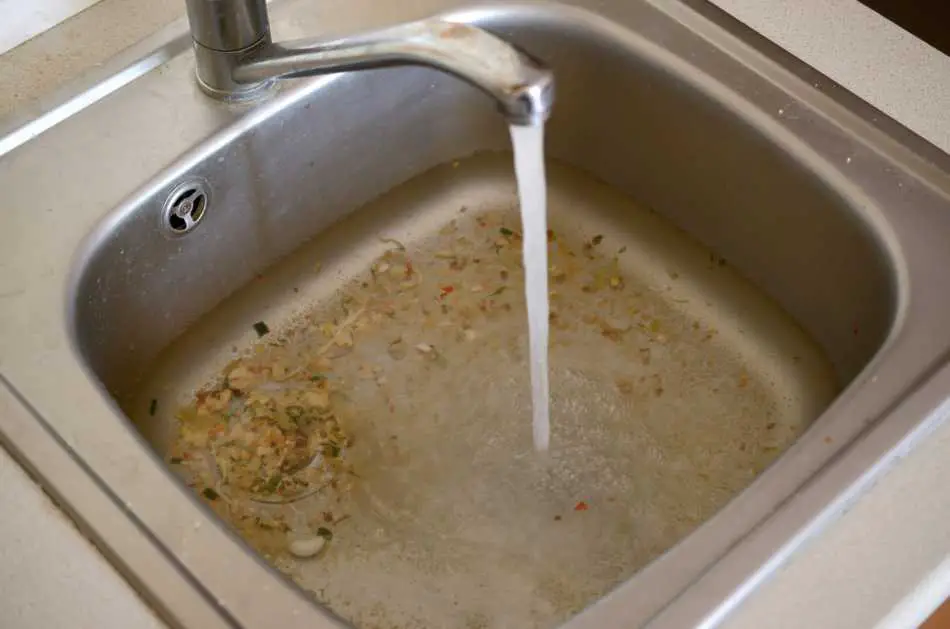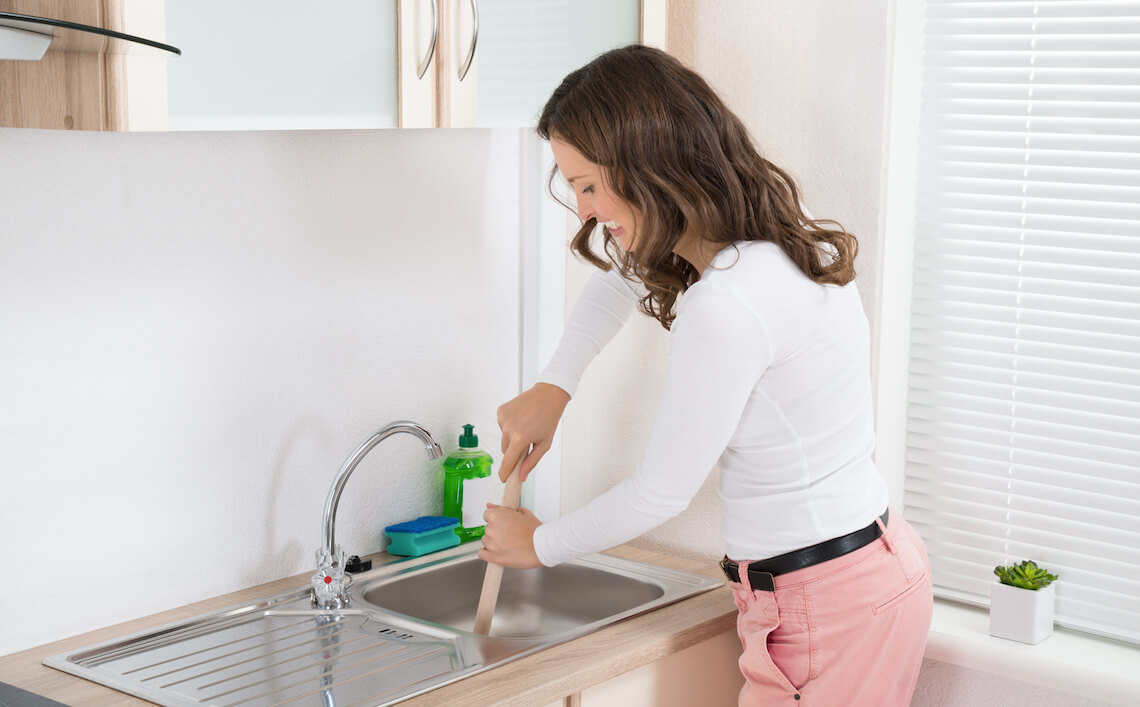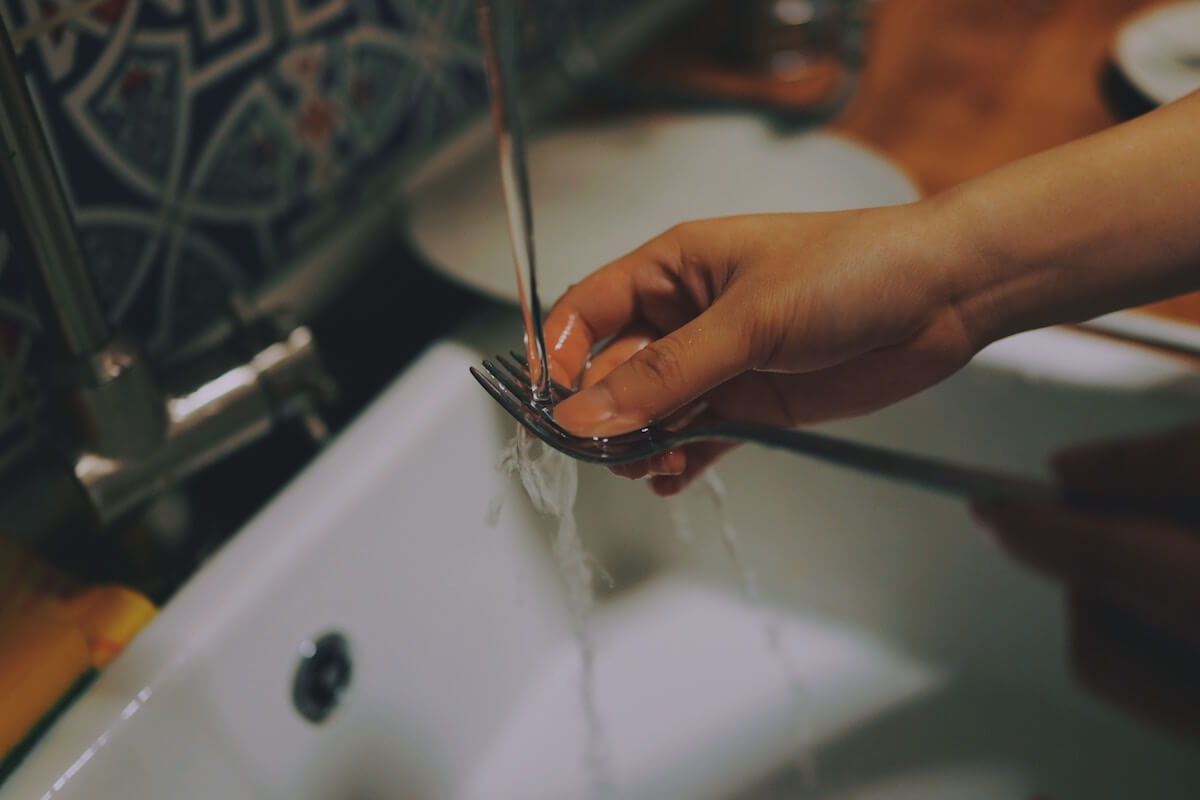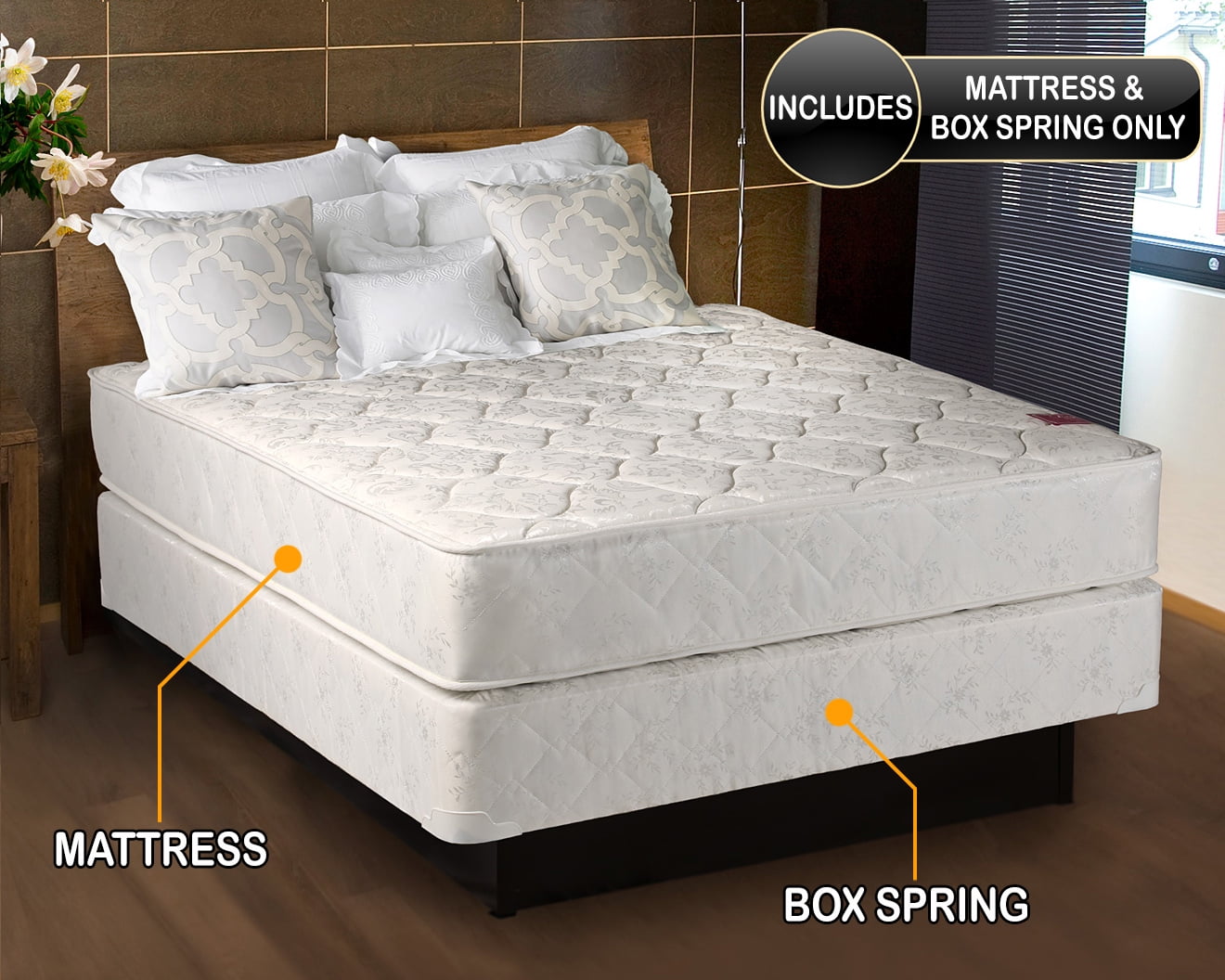Are you struggling with a kitchen sink that won't drain? It can be a frustrating and messy problem to deal with. But before you call a plumber and spend a fortune, try these simple DIY fixes to unclog your kitchen sink. First, let's understand why your kitchen sink is not draining in the first place. There could be various reasons for this, and it's important to identify the cause before attempting to fix it.Unclog a Kitchen Sink
If you have a double sink, start by plugging one side and filling the other side with hot water. Then, use a plunger to create a seal around the drain and plunge vigorously. The pressure created by the plunger should dislodge any clogs and allow the water to drain. If this doesn't work, it's time to get your hands dirty and check the sink trap. This is the U-shaped pipe under the sink that is designed to trap debris and prevent it from clogging the rest of the pipes. Place a bucket or bowl under the trap to catch any water, then use a wrench to loosen the slip nuts on both ends of the trap. Remove the trap and clean out any debris. Once done, reattach the trap and run water to check if the sink is draining properly.How to Fix a Clogged Kitchen Sink
If the above methods don't work, the clog might be further down the drain. You can try using a plumbing snake or a wire hanger to reach down and remove any obstructions. Insert the snake or hanger into the drain and maneuver it back and forth, pulling out any debris. Be sure to wear gloves and be gentle to avoid damaging the pipes. If none of these methods seem to work, the clog could be in the main drain line. In this case, it's best to call a professional plumber who has the tools and expertise to handle the issue.Kitchen Sink Not Draining? Here's What to Do
Now that you know how to unclog a kitchen sink, let's take a look at some of the common reasons why it happens in the first place. 1. Food scraps and grease 2. Soap residue and hair 3. Foreign objects 4. Old pipes 5. Tree roots5 Common Reasons Your Kitchen Sink Won't Drain
One of the most common reasons for a clogged kitchen sink is food scraps and grease. It's important to be mindful of what goes down your drain and avoid pouring cooking oil or grease down it. Instead, dispose of these in a separate container and throw them in the trash.
If you have a garbage disposal, it's possible for soap residue and hair to get caught in it and cause a clog. To prevent this, run hot water down the drain after using the disposal and avoid putting large amounts of hair down the drain.
Sometimes, accidents happen and small objects like rings or toothpicks can fall into the sink and cause a clog. Be mindful of what you're doing around the sink and try to avoid dropping anything small down the drain.
Over time, pipes can deteriorate and become more prone to clogging. If you have an older home, it's possible that the pipes may need to be replaced to prevent frequent clogs.
This may sound strange, but tree roots can actually grow into your main drain line and cause clogs. If you have trees planted near your main water line, it's best to have them removed to avoid any potential issues.
If your kitchen sink is completely backed up and there is standing water, you'll need to take a different approach to unclog it. 1. Use a plunger 2. Try a mixture of baking soda and vinegar 3. Use a plumbing snakeHow to Unclog a Kitchen Sink with Standing Water
As mentioned earlier, a plunger can create enough pressure to dislodge clogs and allow the water to drain. Be sure to create a seal around the drain and plunge vigorously.
This method is known to be effective in breaking down and loosening clogs. Start by pouring half a cup of baking soda down the drain, followed by a cup of vinegar. Let this sit for about 15 minutes, then pour hot water down the drain to flush out the clog.
As mentioned earlier, a plumbing snake or wire hanger can be used to physically remove any obstructions in the drain. Be sure to wear gloves and be gentle to avoid damaging the pipes.
If your kitchen sink is not draining, it's likely due to a clog somewhere in the pipes. It's important to address this issue as soon as possible to avoid any further damage or inconvenience. By following these DIY methods, you can save yourself time and money in unclogging your kitchen sink. However, if you're not comfortable or unable to do it yourself, don't hesitate to call a professional plumber for assistance.Why is My Kitchen Sink Not Draining?
If your kitchen sink is draining slowly, it's a sign of a partial clog. In this case, you can try the same methods mentioned above, but it's important to be more cautious and avoid using harsh chemicals that can damage your pipes. Another preventive measure is to use a drain strainer to catch food scraps and debris before they go down the drain. This can help prevent clogs and keep your kitchen sink draining smoothly.How to Fix a Slow Draining Kitchen Sink
Now that you know how to unclog a kitchen sink, it's important to also know how to keep it clear and prevent future clogs. 1. Regularly clean your sink 2. Avoid pouring grease and oil down the drain 3. Use a garbage disposal properlyHow to Clear a Clogged Kitchen Sink Drain
Make it a habit to clean your sink regularly, especially after doing dishes. This will help prevent buildup of food scraps and grease that can lead to clogs.
As mentioned earlier, avoid pouring grease and oil down the drain as they can solidify and cause clogs.
If you have a garbage disposal, be sure to use it properly and avoid putting large amounts of food scraps down it at once.
Dealing with a kitchen sink that won't drain can be a headache, but with these simple DIY fixes, you can save yourself time and money. Remember to be mindful of what goes down your drain and regularly clean and maintain your sink to prevent future clogs.Kitchen Sink Not Draining? Try These DIY Fixes
If you prefer to avoid using harsh chemicals to unclog your kitchen sink, there are natural methods that can be just as effective. Besides the baking soda and vinegar mixture mentioned earlier, you can also try using a combination of salt and hot water. Pour half a cup of salt down the drain, followed by hot water. Let this sit for a few minutes, then flush with hot water to clear the clog. Another method is to use a combination of dish soap and hot water. Pour a few tablespoons of dish soap down the drain, followed by hot water. Let this sit for about 10 minutes, then flush with hot water to clear the clog. By using these natural methods, you can effectively unclog your kitchen sink without the use of harsh chemicals that can be damaging to your pipes and the environment.How to Unclog a Kitchen Sink Without Harsh Chemicals
Why Is Water Not Draining from Your Kitchen Sink?
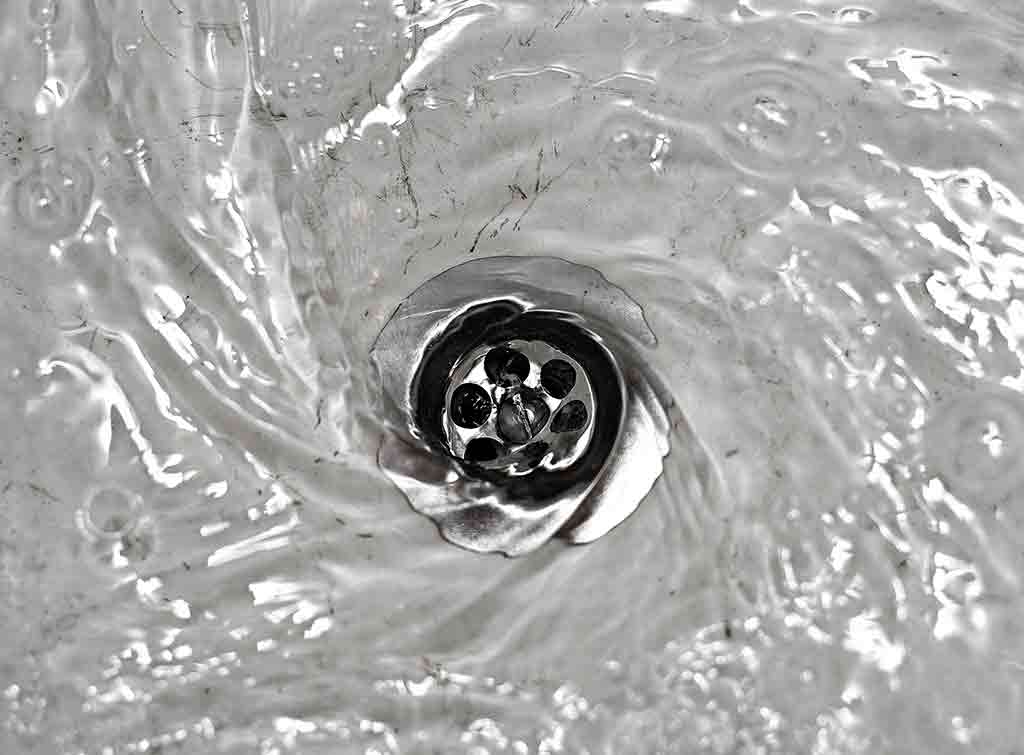
Possible Causes and Solutions
 If you are experiencing water not draining from your kitchen sink, it can be a frustrating and inconvenient problem. Not only can it disrupt your daily routine, but it can also lead to unpleasant odors and even potential health hazards. There are several possible causes for a clogged sink, and understanding these causes can help you find the best solution. Here are some common reasons why your kitchen sink may not be draining properly and how to fix them.
If you are experiencing water not draining from your kitchen sink, it can be a frustrating and inconvenient problem. Not only can it disrupt your daily routine, but it can also lead to unpleasant odors and even potential health hazards. There are several possible causes for a clogged sink, and understanding these causes can help you find the best solution. Here are some common reasons why your kitchen sink may not be draining properly and how to fix them.
Clogged Drain
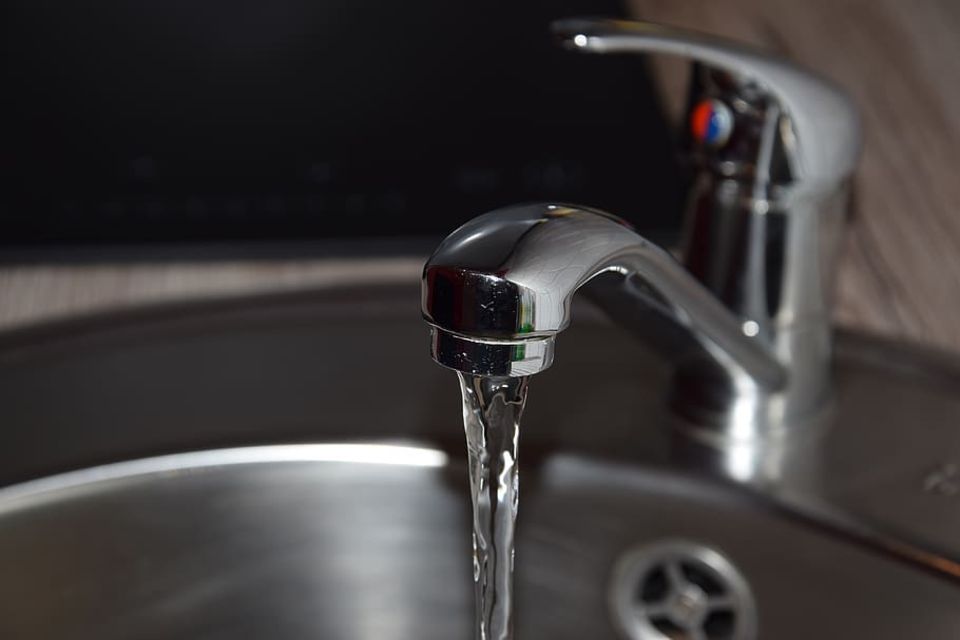 The most common cause of a kitchen sink not draining is a clogged drain. Over time, food debris, grease, and other substances can build up in your drain, causing it to become blocked. This can prevent water from flowing freely and cause it to back up into your sink. To fix this issue, you can try using a plunger to dislodge the clog or pouring a mixture of hot water and baking soda down the drain. For more stubborn clogs, a drain snake or chemical drain cleaner may be necessary.
The most common cause of a kitchen sink not draining is a clogged drain. Over time, food debris, grease, and other substances can build up in your drain, causing it to become blocked. This can prevent water from flowing freely and cause it to back up into your sink. To fix this issue, you can try using a plunger to dislodge the clog or pouring a mixture of hot water and baking soda down the drain. For more stubborn clogs, a drain snake or chemical drain cleaner may be necessary.
Blocked Vent
 Another reason why your kitchen sink may not be draining is a blocked vent. The vent is a pipe that allows air to flow into your drain, preventing suction and allowing water to drain properly. If the vent becomes blocked, it can cause slow or no drainage. You can check for a blocked vent by climbing onto your roof and inspecting the vent pipe. If you see any debris or obstruction, use a plumber's snake to clear it.
Another reason why your kitchen sink may not be draining is a blocked vent. The vent is a pipe that allows air to flow into your drain, preventing suction and allowing water to drain properly. If the vent becomes blocked, it can cause slow or no drainage. You can check for a blocked vent by climbing onto your roof and inspecting the vent pipe. If you see any debris or obstruction, use a plumber's snake to clear it.
Old or Faulty Pipes
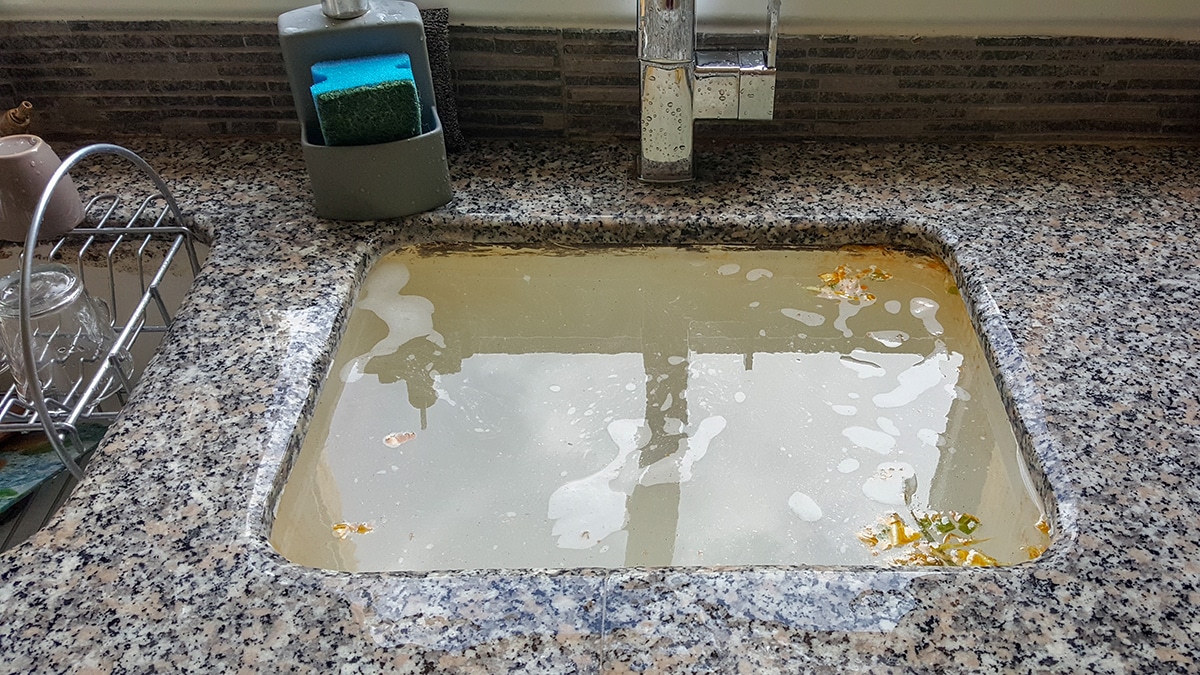 If your kitchen sink is draining slowly or not at all, it could be due to old or faulty pipes. Over time, pipes can corrode, crack, or collapse, causing blockages and preventing water from draining. If you suspect this is the case, it is best to call a professional plumber to inspect and replace any damaged pipes.
If your kitchen sink is draining slowly or not at all, it could be due to old or faulty pipes. Over time, pipes can corrode, crack, or collapse, causing blockages and preventing water from draining. If you suspect this is the case, it is best to call a professional plumber to inspect and replace any damaged pipes.
Improper Garbage Disposal Usage
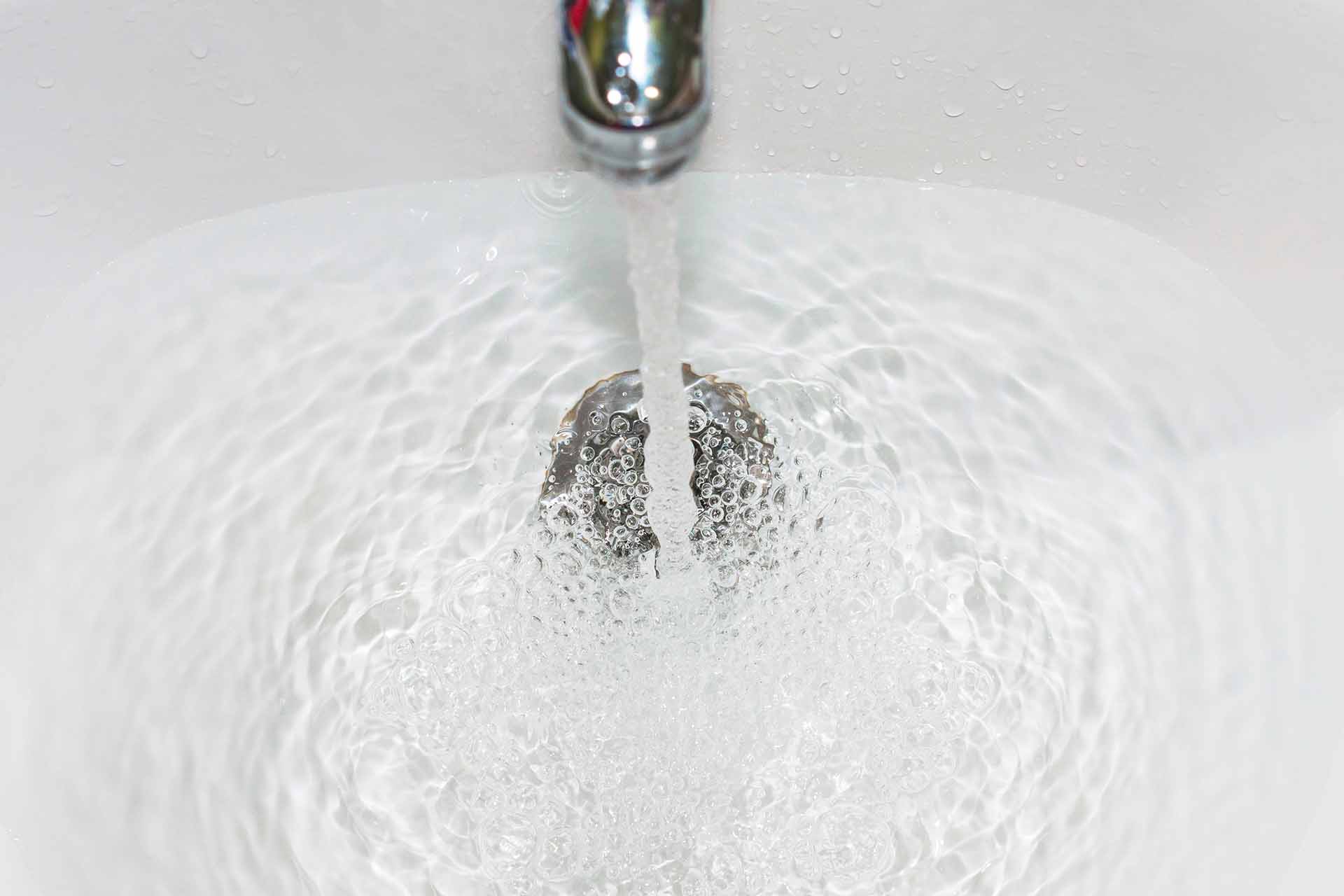 If you have a garbage disposal, it is important to use it properly to avoid clogs. Certain foods, such as potato peels, eggshells, and fibrous vegetables, can damage the blades and clog the drain. Make sure to run water while using the disposal and avoid putting large amounts of food down the drain at once.
If you have a garbage disposal, it is important to use it properly to avoid clogs. Certain foods, such as potato peels, eggshells, and fibrous vegetables, can damage the blades and clog the drain. Make sure to run water while using the disposal and avoid putting large amounts of food down the drain at once.
Conclusion
/close-up-of-overflowing-bathroom-sink-90201417-579787783df78ceb865822d8.jpg) In conclusion, a clogged kitchen sink can be a nuisance, but it is a common problem that can be easily fixed. By understanding the possible causes, you can take the appropriate steps to unclog your sink and prevent future blockages. If the issue persists, it is best to seek the help of a professional plumber to avoid any further damage to your pipes. With proper maintenance and care, you can keep your kitchen sink draining smoothly and avoid any future complications.
In conclusion, a clogged kitchen sink can be a nuisance, but it is a common problem that can be easily fixed. By understanding the possible causes, you can take the appropriate steps to unclog your sink and prevent future blockages. If the issue persists, it is best to seek the help of a professional plumber to avoid any further damage to your pipes. With proper maintenance and care, you can keep your kitchen sink draining smoothly and avoid any future complications.
/plumber-unclogging-kitchen-sink-169270382-5797a9355f9b58461f27f024.jpg)

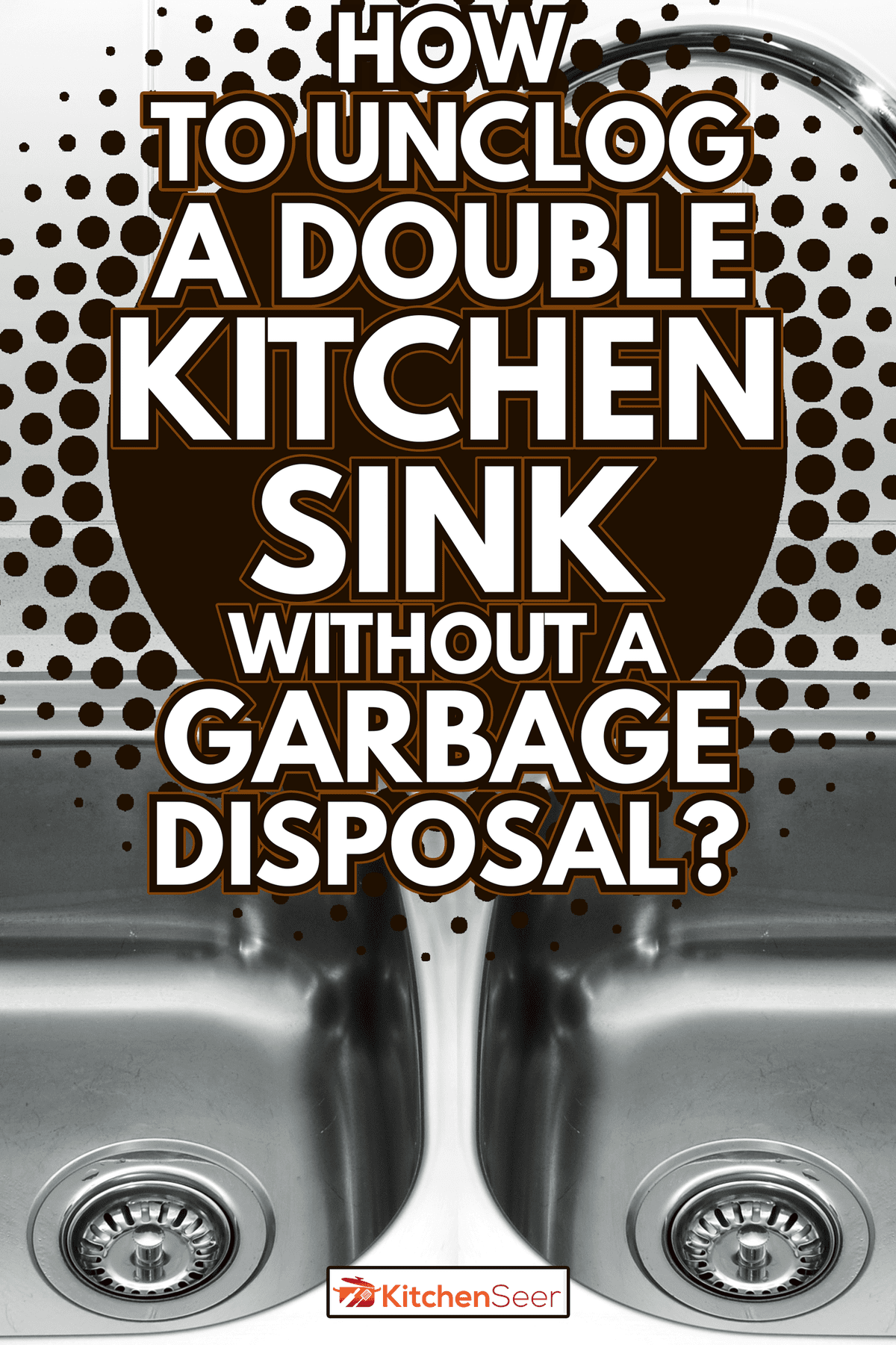




:max_bytes(150000):strip_icc()/how-to-unclog-a-kitchen-sink-2718799_sketch_FINAL-8c5caa805a69493ab22dfb537c72a1b7.png)


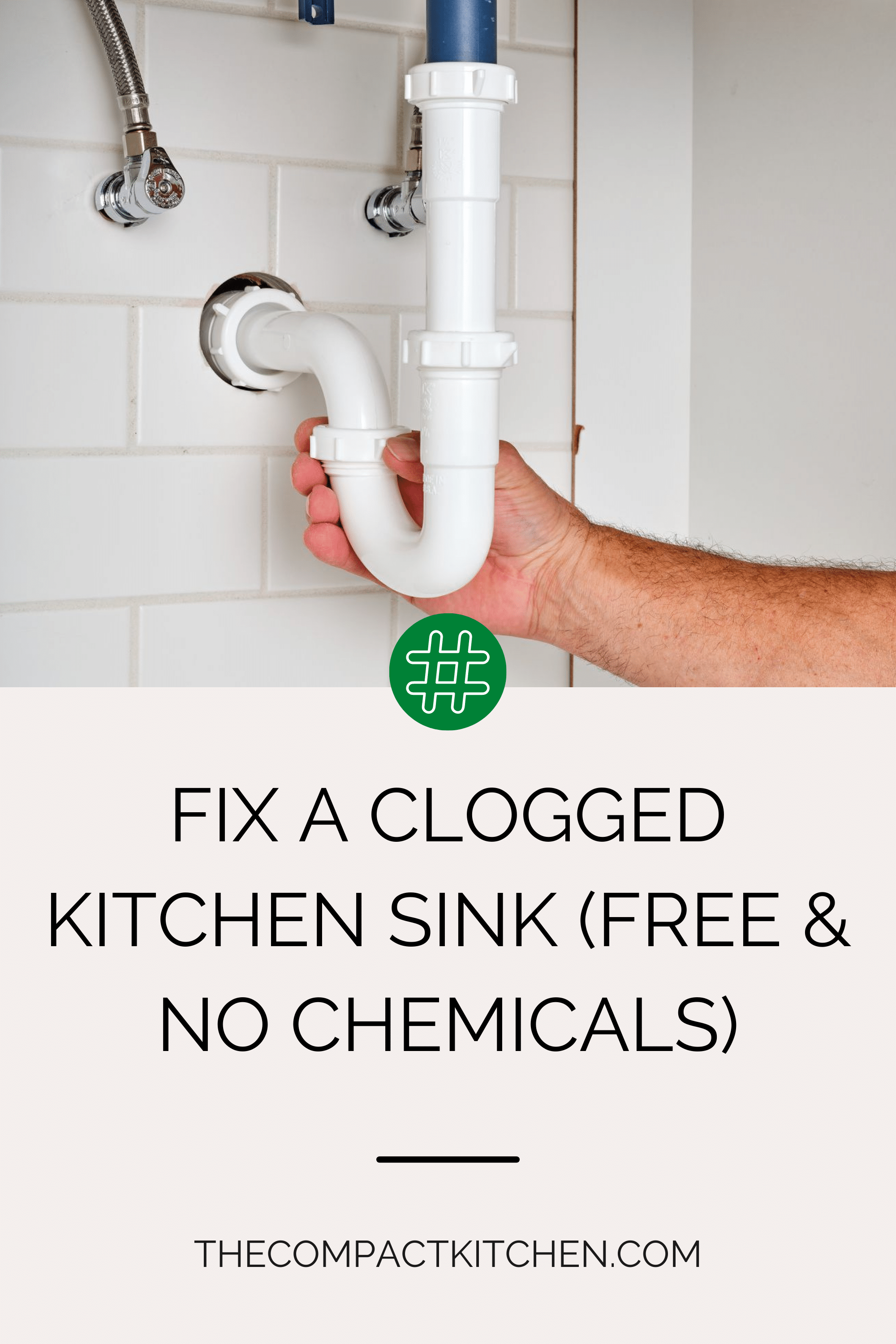






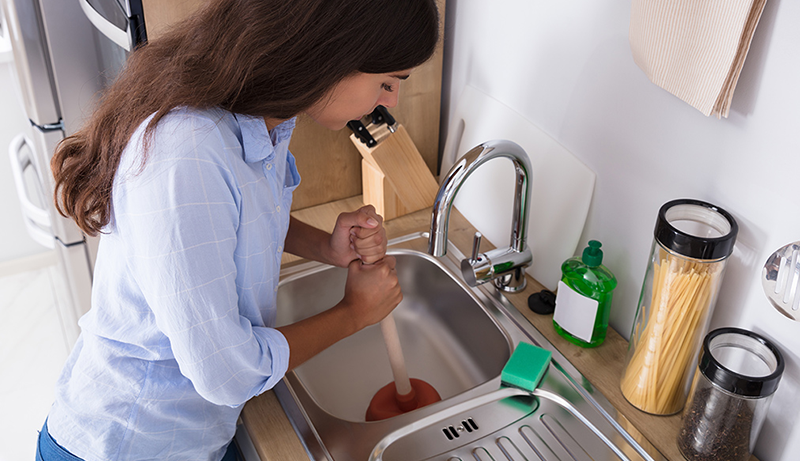

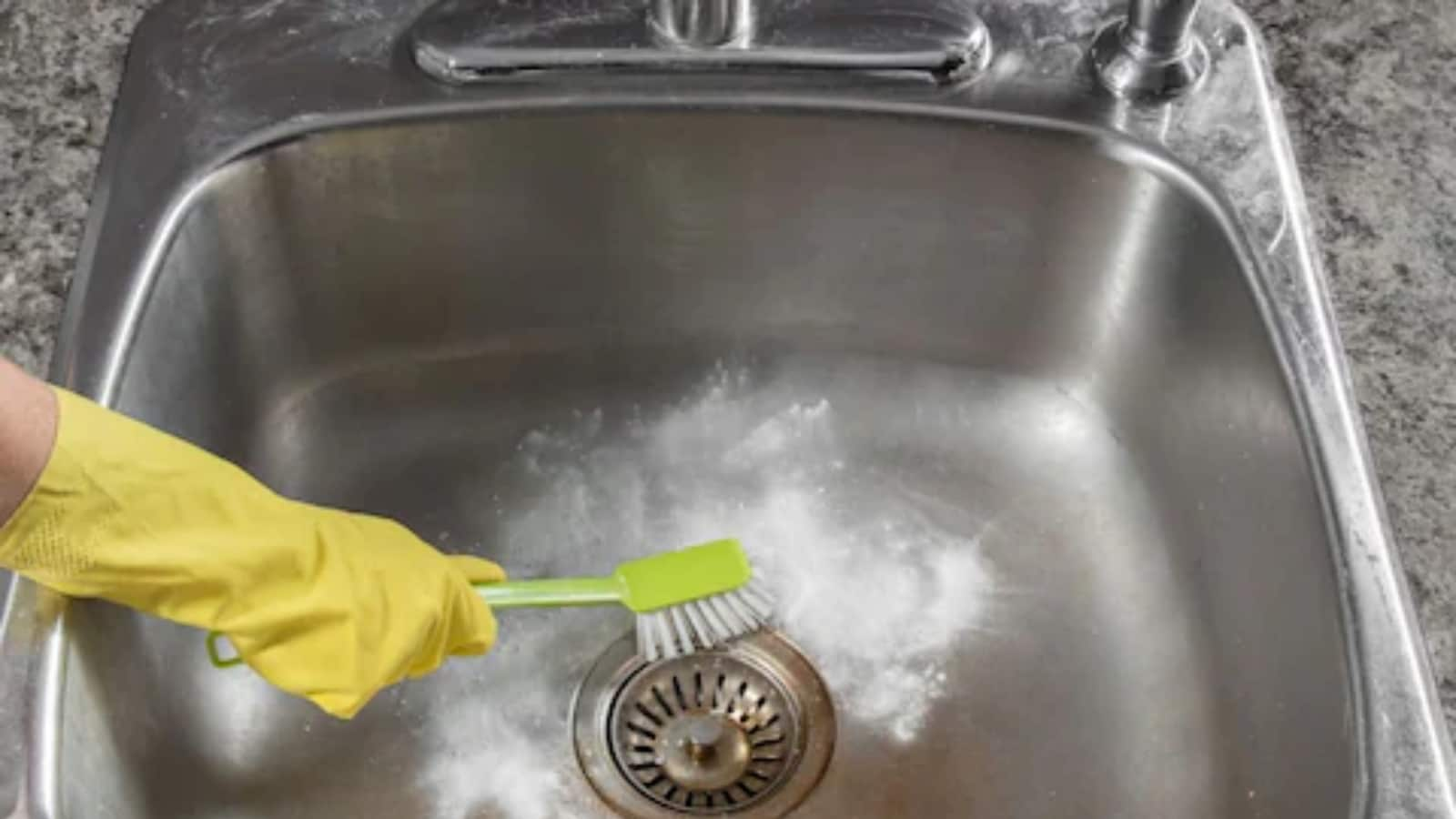



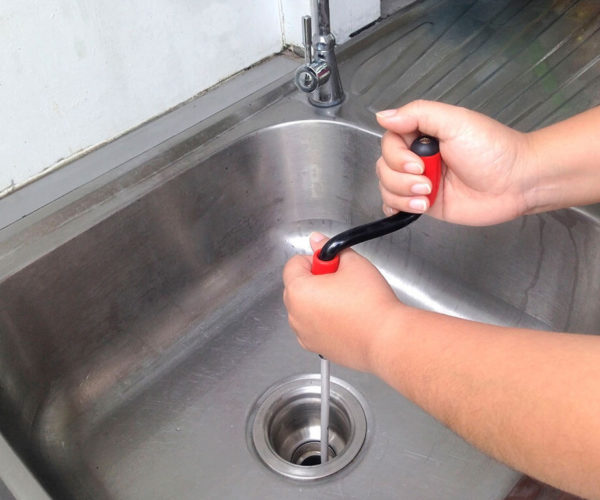

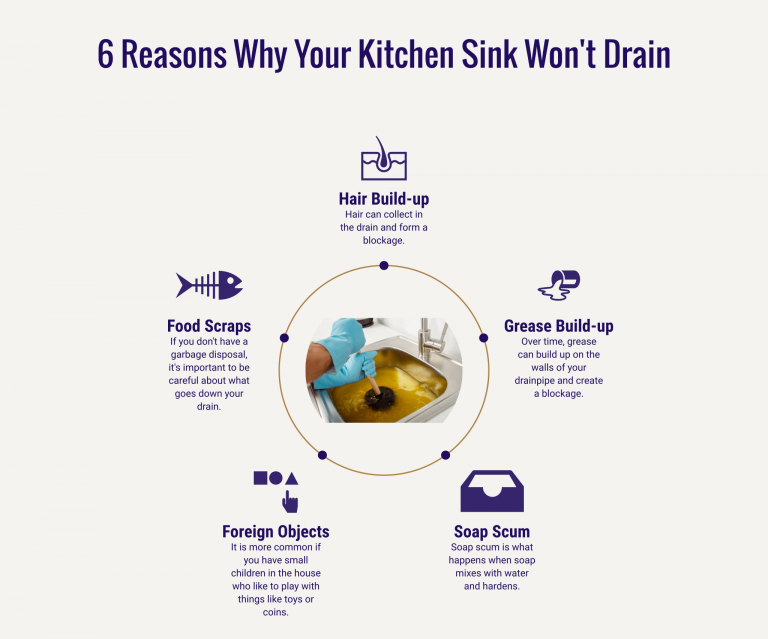

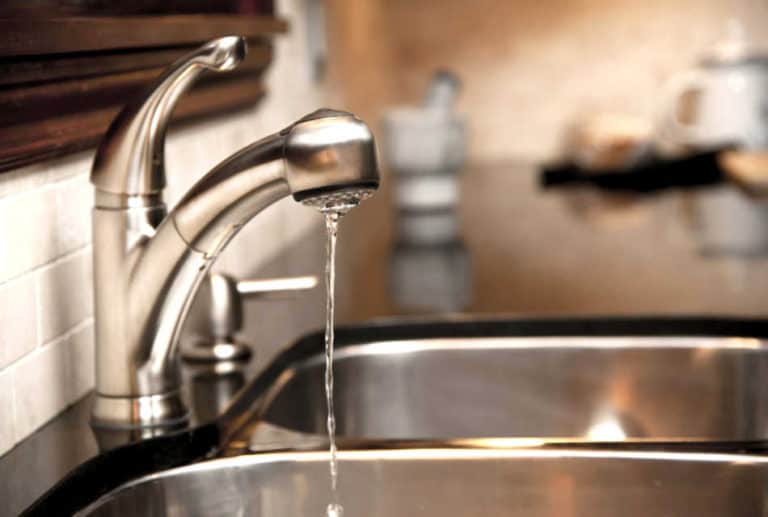





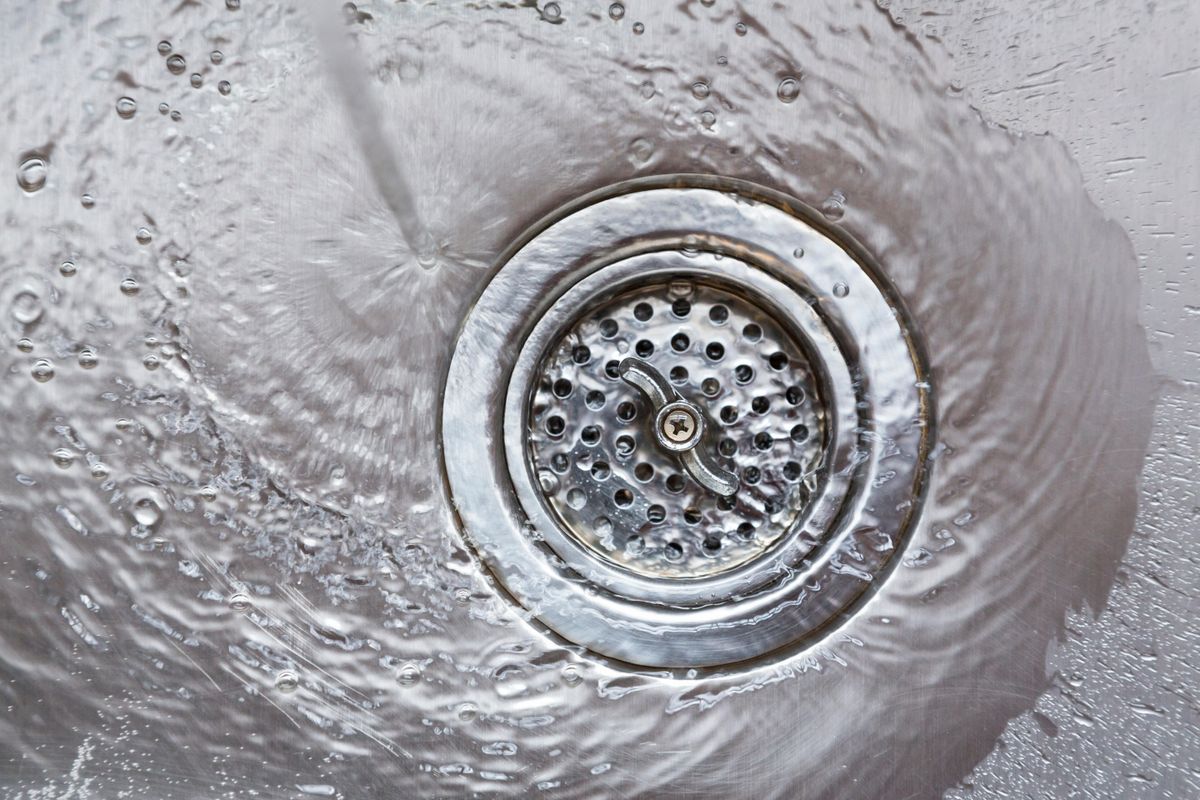
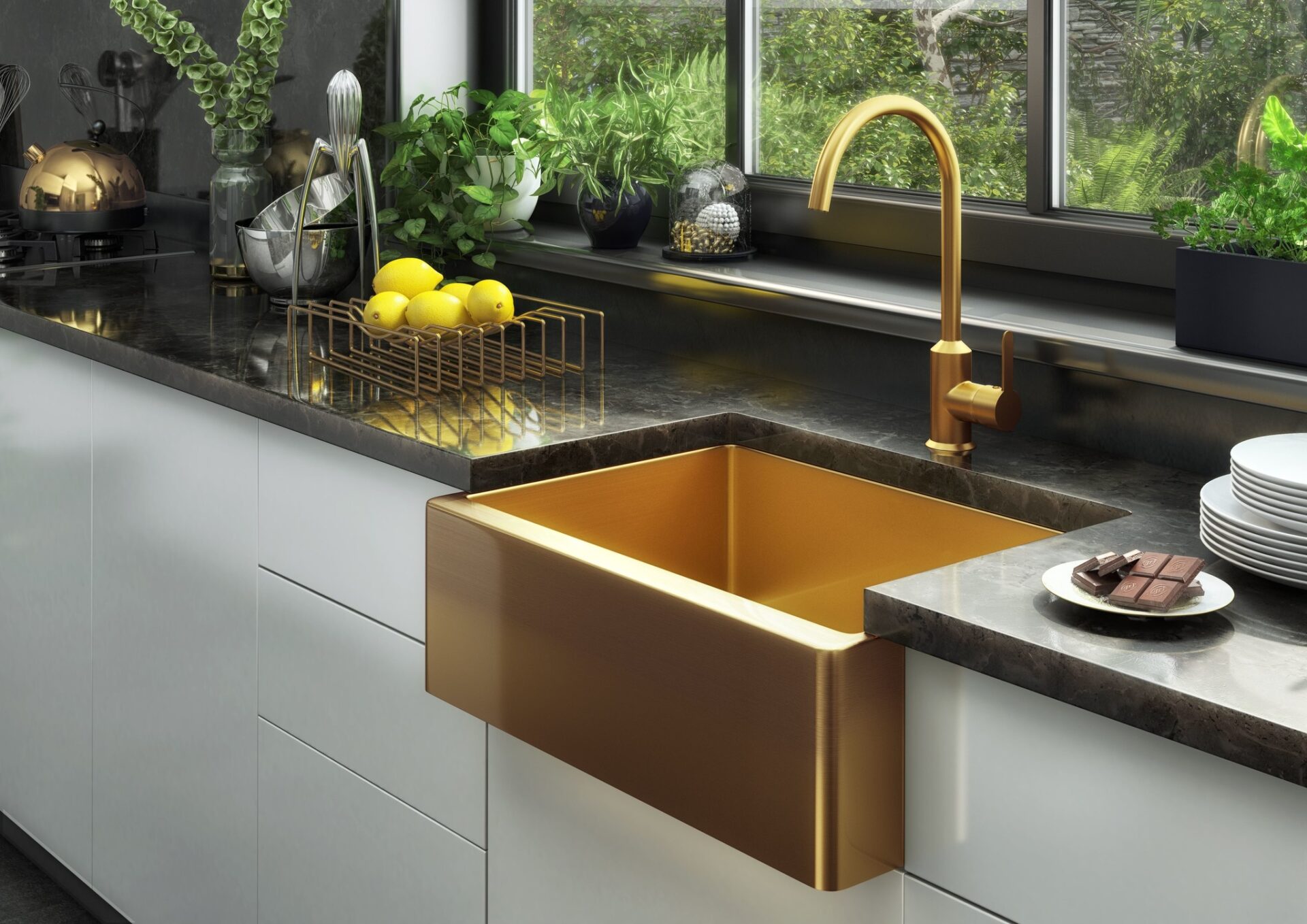
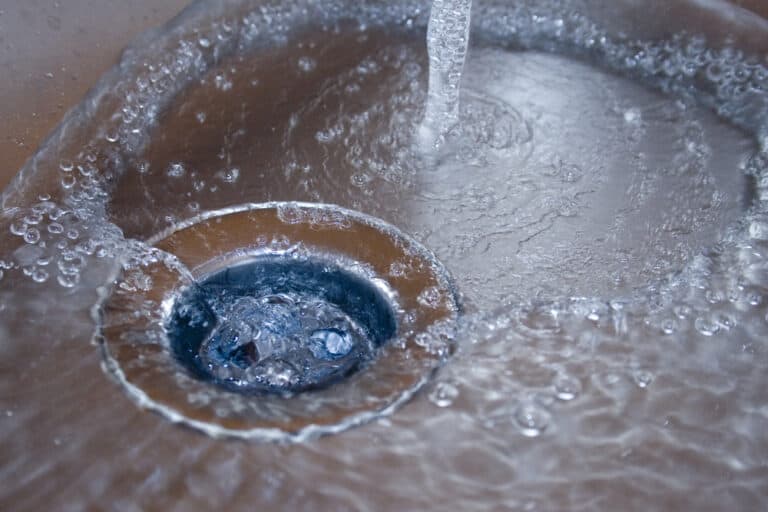
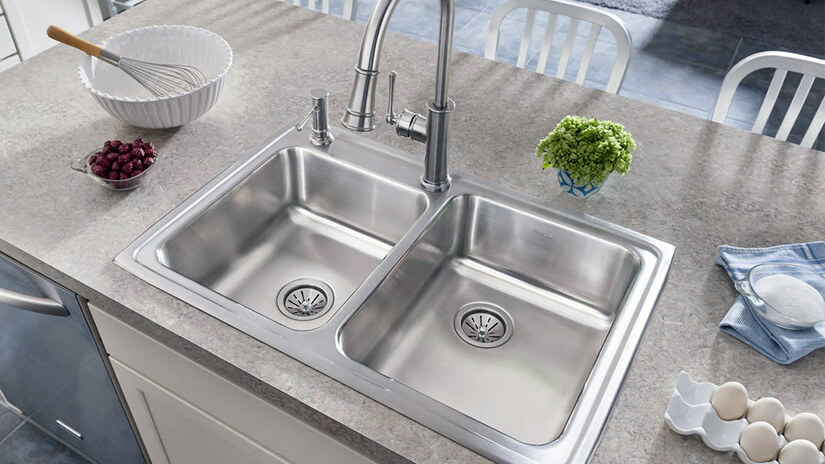








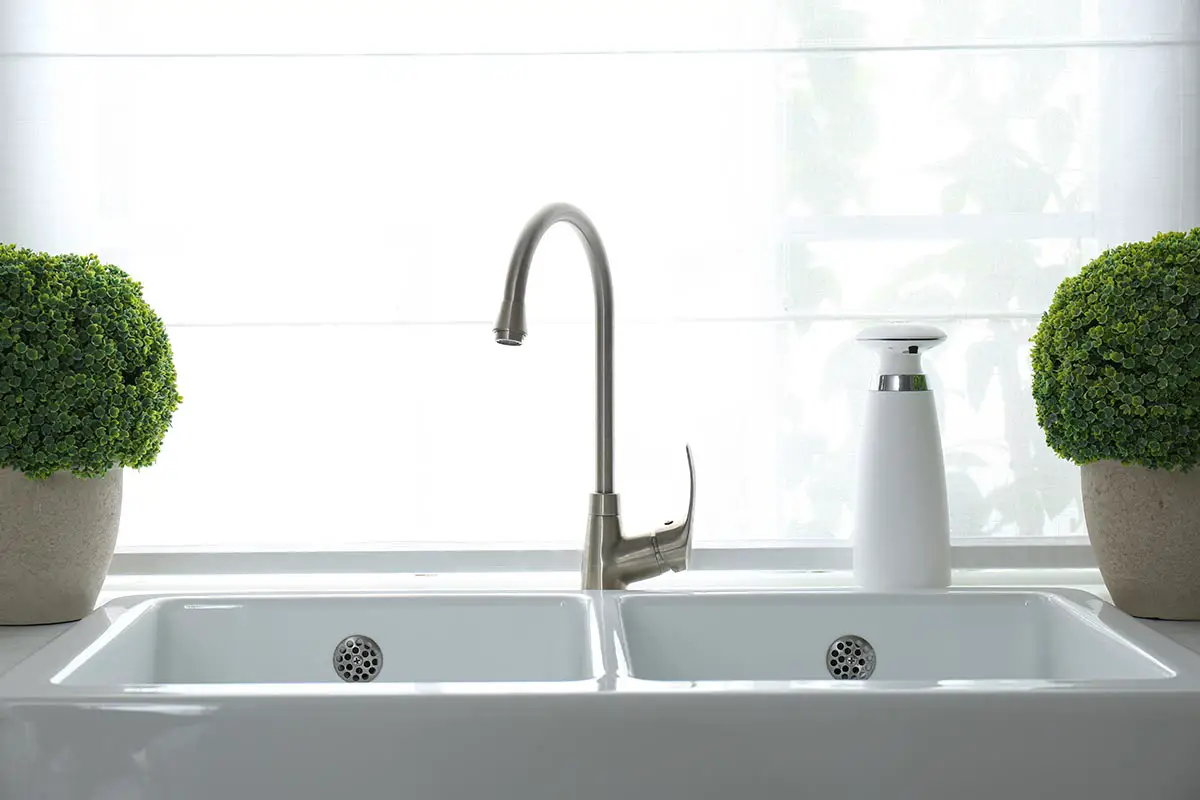


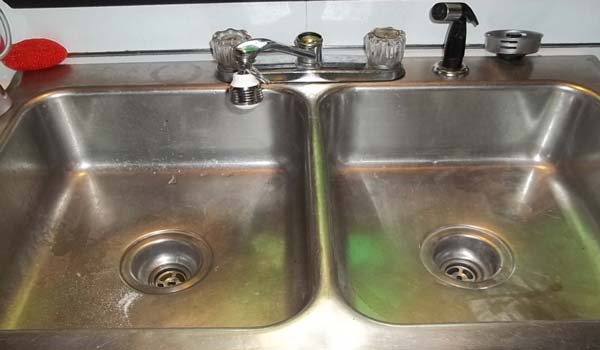




















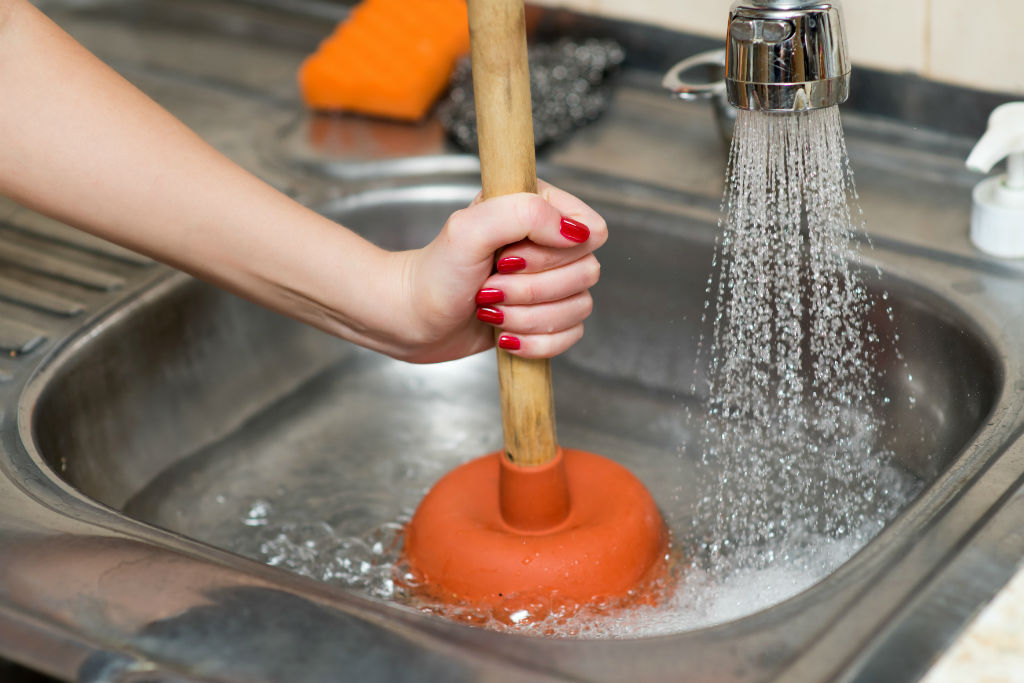
:max_bytes(150000):strip_icc()/freshen-and-unclog-drain-with-baking-soda-1900466-22-bbf940b70afa4d5abef0c54da23b1d3f.jpg)






